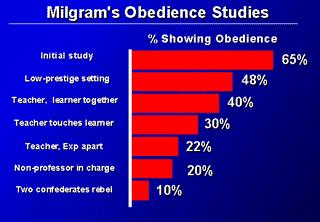I'm at a point in our book club book, Sophie's Choice, where Sophie is beginning to talk to the narrator about her stay in Auschwitz. While this is a work of fiction, I'm impressed with William Styron's research into the camp and its commandant, the notorious Rudolf Höss. While most of us tend to think of the the Final Solution and the Holocaust as the works of psychotic monsters, the truth is much more mundane, and perhaps more frightening: these were boring people.
When I was reading this part of the book, the word "banal" was used, in reference to a book written by Hannah Arendt. I immediately thought of the phrase "the banality of evil," and when I looked it up to see who coined that phrase, it was indeed Hannah Arendt, a German political theorist who wrote a book called Eichmann in Jerusalem: A Report on the Banality of Evil, published in 1963. Arendt theorized that true evil is not the dramatic concept shown in novels and movies, such as the mad scientist creating a monstrosity, or the psychotic serial killer; it is monotonous and commonplace, the result of drones who believe it is their duty to follow orders, to blindly follow a cause, and to carry out the plan, no matter how morally repugnant it might be.
When I was in high school, I read about the experiments of Dr. Stanley Milgram. The Milgram Experiments are pretty well-known to anyone who has taken a Psychology course, and they may have been well-known when I was in high school, too. I don't know about that, but I thought it was one of the most fascinating and disturbing things I'd read up to then. If you aren't familiar with the experiment, a test subject was set up in what they thought was a learning exercise. The person conducting the study, a person of authority (the "experimenter"), told the subject (the "teacher") that if the person learning the lesson (the "student") got an answer wrong, they were to give them an electric shock. The strength of the shocks were to increase with each wrong answer. The student was in on this, of course, and no real shocks were given...but the teacher giving the shocks didn't know that. The disturbing finding was that the subjects would continue to give the shocks even when they heard the "screams" of the recipients. If they hesitated, the experimenter admonished them in increasingly strong terms that they MUST continue, the study depends upon it. A frightening number of people continued until they gave the maximum shock...and heard nothing more from the next room, where the student had gone silent.
The "banality of evil" is a sinister phrase when you think about it. We may not always know when those around us harbor terrible things--or the possibility of terrible things--inside them. A commonplace demeanor could hide the potential for horrid behavior. Heinrich Himmler was a chicken farmer, for Pete's sake.
While a certain amount of order must be maintained in a civilized society, blind obedience is dangerous. Arendt postulated that evil is banal. I believe it is also ignorant. (Maybe she did, too. I haven't read the book.) In not taking the time or energy needed to learn about others, regardless of nationality, race, gender, or creed, we follow the herd and perpetuate the lies and myths that so many take as a given. It's a scarily easy leap to imagine the next step down a very slippery slope.
You've seen bumper stickers that say "Mean people suck." After thinking about this a bit, I think a better phrase is "Mean people are boring and stupid."



2 comments:
An interesting post, it made me think, thank you for that, I read Sophie's choice years ago, it's a harrowing read. Banality of Evil is so true all the ime people look for monsters, and they're usually right there beside us, gives a lot of pause for thought.
Take care
Yasmin
x
I am not excusing what happened in the camps one bit, but pathological group behavior is well documented, & rampant. Most people are followers rather than leaders, inclined to recede into the fold. They have run many experiments with students as either randomly jailors or prisoners & at times have had to stop the experiments because the (student) jailors became so drunk of the power of "enforcing."
Many had previously been passive ..active in war protest. ~Mary
Post a Comment